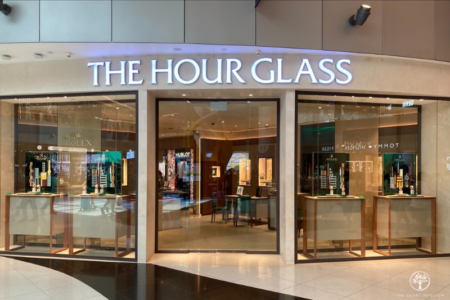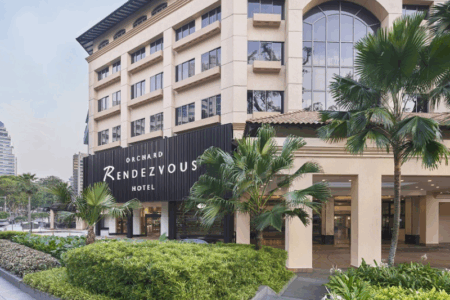The two Chinese words for “crisis” (危机) can be broken down into “danger” and “opportunity”.
Most investors will recognise the risks present in a recession.
Few, however, recognise that there are also opportunities to be found amid a protracted downturn.
A crisis can open up opportunities for businesses to expand, provided they are well-capitalised and have the available resources.
For one, competitors may be suffering from plunging demand and are struggling to cope with weakened cash flows and damaged balance sheets.
Stronger players, in this case, will be well-positioned to wrestle market share away.
Another aspect of crises is that they tend to depress the value of assets, making them more affordable for buyers.
A business with a robust balance sheet can then swoop in and snap up great assets at bargain-basement prices.
Retail, in particular, has been hard hit by lockdowns and movement control restrictions due to COVID-19.
However, two retail stocks are still pushing ahead with their growth plans despite the challenges.
Koufu Group Ltd (SGX: VL6)
Koufu is an established operator and manager of food courts and coffee shops in Singapore. The group also has a small presence in Macau.
The group’s business is made up of two distinct segments: outlet and mall management, and food and beverage (F&B) retail.
Koufu manages and operates food courts, coffee shops, a hawker centre and a commercial mall.
Its F&B arm operates food kiosks and quick-service restaurants under various brands such as Supertea, Elemen and R&B Tea.
On 24 August, Koufu announced that it had entered into a master franchise agreement with Shakey’s Pizza Asia Ventures (PSE: SHYYF) in the Philippines to expand its Supertea and R&B Tea brands into the Philippines.
Shakey’s will be awarded the rights for seven years and will adopt a co-branding strategy to sell selected R&B Tea drinks in both Shakey’s and Peri Peri stores in the first year.
Subsequently, the master franchisee is expected to open at least five self-operated, stand-alone R&B Tea outlets.
Shakey’s is an established F&B operator in the Philippines with more than 45 years of experience, and this move represents Koufu’s first foray into the country.
The announcement comes hot on the heels of an acquisition that Koufu made on 1 July.
The group had recently acquired Deli Asia, a traditional fried food and dough products group, for S$22.04 million.
Deli Asia owns the “Dough Culture” brand and retails fried food and dough products to consumers in various locations including suburban malls.
These two announcements demonstrate Koufu’s appetite for growth despite the tough conditions imposed by the pandemic.
Not only is the group growing its range of brands and products, but it is also pushing ahead to expand into other countries through franchise agreements.
Frasers Centrepoint Trust (SGX: J69U)
Frasers Centrepoint Trust, or FCT, is a retail REIT that owns suburban retail properties in Singapore.
As of 30 June 2020, the REIT’s portfolio includes six malls and a 40% stake in a seventh mall (Waterway Point).
FCT also owns a 31.15% stake in Hektar REIT (KLSE: 5121) which is listed on Bursa Malaysia.
Last week, the REIT announced that it will acquire the remaining 63.1% in AsiaRetail Fund Limited (ARF) for S$1.06 billion.
This deal will bump up FCT’s portfolio total asset size to S$6.6 billion from the current S$3.9 billion.
At the same time, FCT has also proposed to divest Bedok Point for S$108 million to its sponsor, Frasers Property Limited (SGX: TQ5).
ARF owns a portfolio of suburban retail malls with similar characteristics to FCT’s current portfolio and consists of five retail malls: Tiong Bahru Plaza, White Sands, Hougang Mall, Century Square and Tampines 1.
Upon completion of these transactions, FCT’s retail mall portfolio will increase from the current seven to 11 malls.
The REIT will undertake a fund-raising exercise (details of which will be disclosed in due course) to raise approximately S$1.3 billion.
This deal is significant as it demonstrates the manager’s confidence in the suburban retail mall concept, even as footfall and brick-and-mortar stores were badly hit by Singapore’s circuit breaker measures to halt the spread of the coronavirus.
Suburban malls represent a more resilient asset class compared with centrally-located malls that rely on tourist flows.
For July, ARF’s total tenant sales had almost recovered to pre-COVID levels, down just 0.7% year on year.
FCT’s portfolio of malls also saw significant improvement in tenant sales, down just 3% year on year in July.
With share prices battered to multi-year lows, many attractive investment opportunities have emerged. In a special FREE report, we show you 3 stocks that we think will be suitable for our portfolio. Simply click here to scoop up your FREE copy… before the next stock market rally.
Click here to like and follow us on Facebook, here for our Instagram group and here for our Telegram group.
Disclaimer: Royston Yang does not own shares in any of the companies mentioned.




